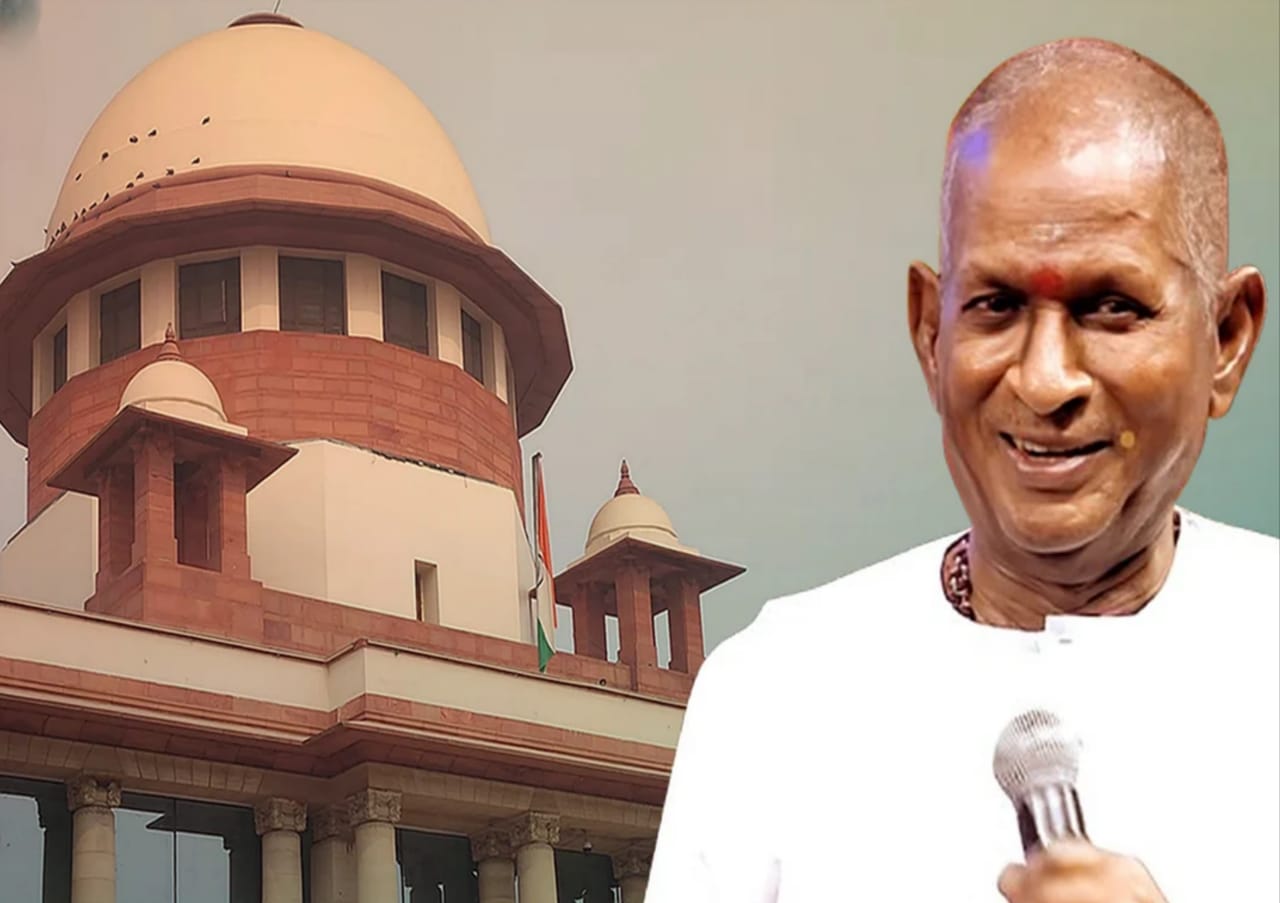
In a significant development in the ongoing copyright battle involving legendary music composer Ilaiyaraaja, the Supreme Court on Monday dismissed his petition seeking to transfer a high-stakes lawsuit from the Bombay High Court to the Madras High Court.
The three-judge bench, comprising Chief Justice B.R. Gavai and Justices K. Vinod Chandran and N.V. Anjaria, rejected arguments presented by senior advocate Gopal Sankaranarayanan, who represented Ilaiyaraaja's company, Ilaiyaraaja Music N Management Pvt Ltd (IMMPL).
At the heart of this legal tussle lies a 2022 lawsuit filed by Sony Music Entertainment India in the Bombay High Court. Sony claims ownership rights over 536 musical compositions by Ilaiyaraaja, which it allegedly acquired through a complex chain of transactions involving Oriental Records and Echo Recording Company.
The dispute centres on some of Indian cinema's most beloved musical works created by Ilaiyaraaja, whose prolific career spans over 7,500 songs across 1,500 films, earning him recognition as one of India's most celebrated composers.
IMMPL's transfer petition highlighted a critical overlap in the legal proceedings. According to the company, 310 of the 536 disputed works are already subject to litigation in the Madras High Court through a separate case that Ilaiyaraaja filed against Echo Recording in 2014.
In that earlier case, Ilaiyaraaja challenged Echo Recording's claims over his compositions and asserted his moral and economic rights under India's Copyright Act. The Madras High Court's 2019 judgment was particularly nuanced – while it recognised Echo's sound recording rights, it upheld Ilaiyaraaja's moral and special rights as the original composer.
The legal web became more complex when Echo subsequently assigned its catalogue to Oriental Records, which then agreed with Sony Music, forming the basis for Sony's current Bombay High Court lawsuit.
IMMPL presented several compelling arguments for transferring the case to Chennai. The company emphasised that the Bombay proceedings were essentially duplicative, given that the same issues were already being adjudicated in Madras, where appeals remain pending with a stay granted on portions of the 2019 judgment.
Additionally, IMMPL argued practical considerations, noting that the company operates exclusively from Chennai with no business presence in Mumbai. They warned that allowing simultaneous proceedings in two different high courts could lead to conflicting judgments and unnecessary multiplication of litigation.
However, Sony's counsel countered these arguments by pointing out a crucial timeline detail: when Sony filed its case in the Bombay High Court, no similar proceedings were pending in the Madras High Court at that time.
With the Supreme Court's dismissal of the transfer petition, the copyright battle will continue to unfold in Mumbai's Bombay High Court. This decision ensures that one of India's most significant music copyright disputes will be resolved in the commercial capital, potentially setting important precedents for the entertainment industry.
The case underscores the complex nature of copyright ownership in India's film music industry, where rights often pass through multiple hands before reaching major music labels like Sony.